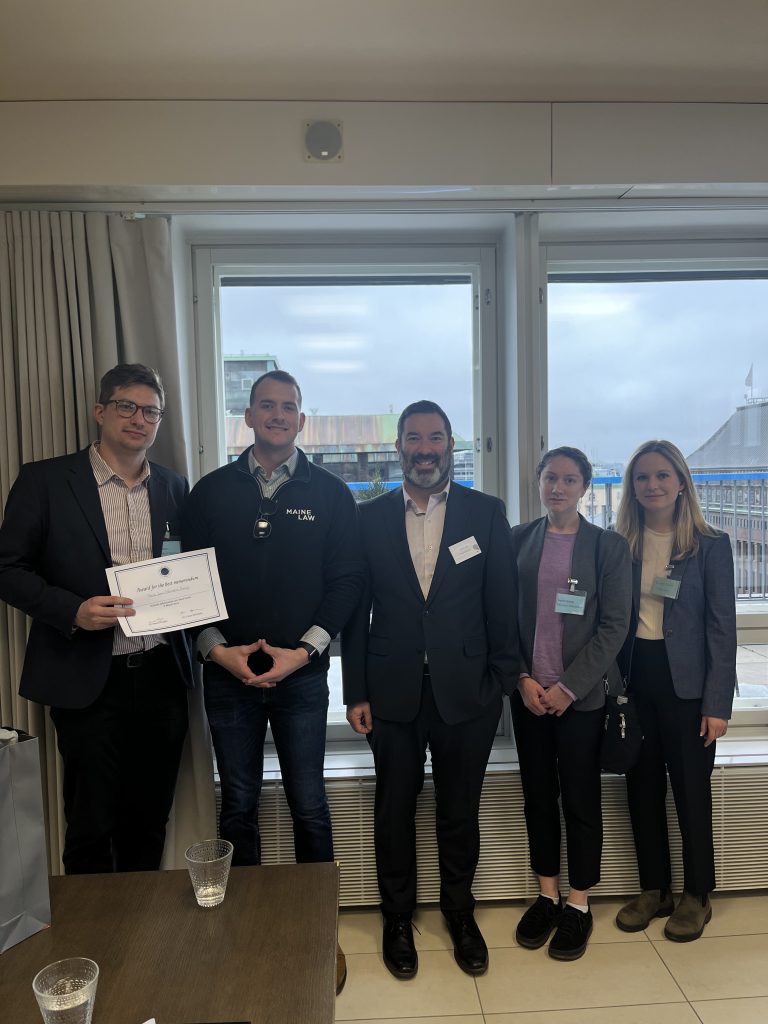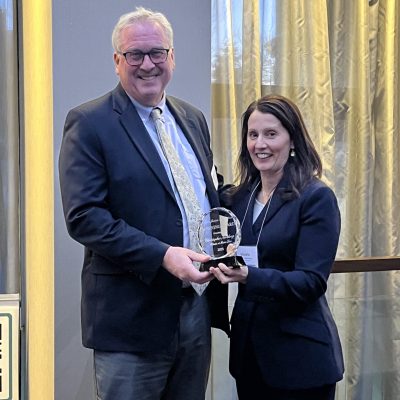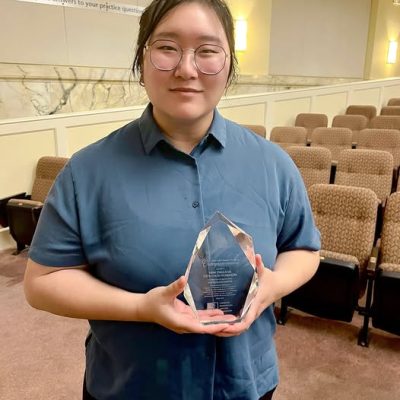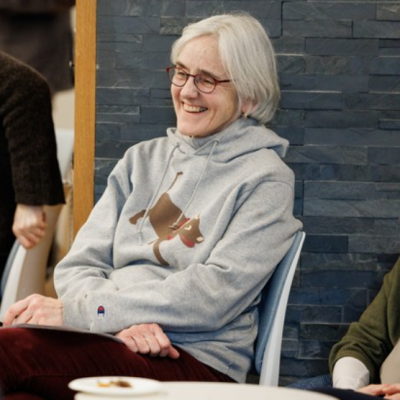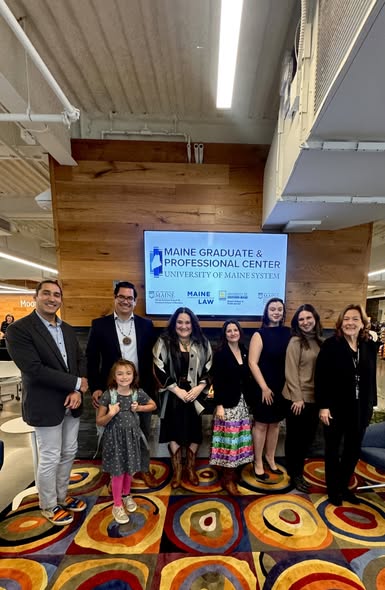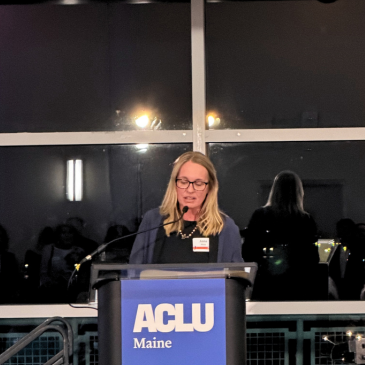In 2022 Jenn Thompson and Mark Sayre were 1Ls partnered up to practice their end of term oral arguments.
Spoiler alert: it went well.
Fast forward to Spring of 2024 and they found themselves, along with teammate 3L Joseph Tavares, advancing to the quarterfinal of the Bryant-Moore Civil Rights Competition, hosted by Howard University School of Law, and taking home the award for Best Brief.
“We decided to do Moot Court again because we enjoyed working together so much,” Sayre said of Thompson. “In fact, we told Professor Arey we would love to do Moot Court if we had the opportunity to be paired together.”
“She was very kind to accommodate us,” Thompson laughed.
Professor Angela Arey took over the Moot Court program in 2012. While always supportive and accommodating, Arey has also pushed the program to new heights, challenging students to approach complex legal issues from every possible vantage point.
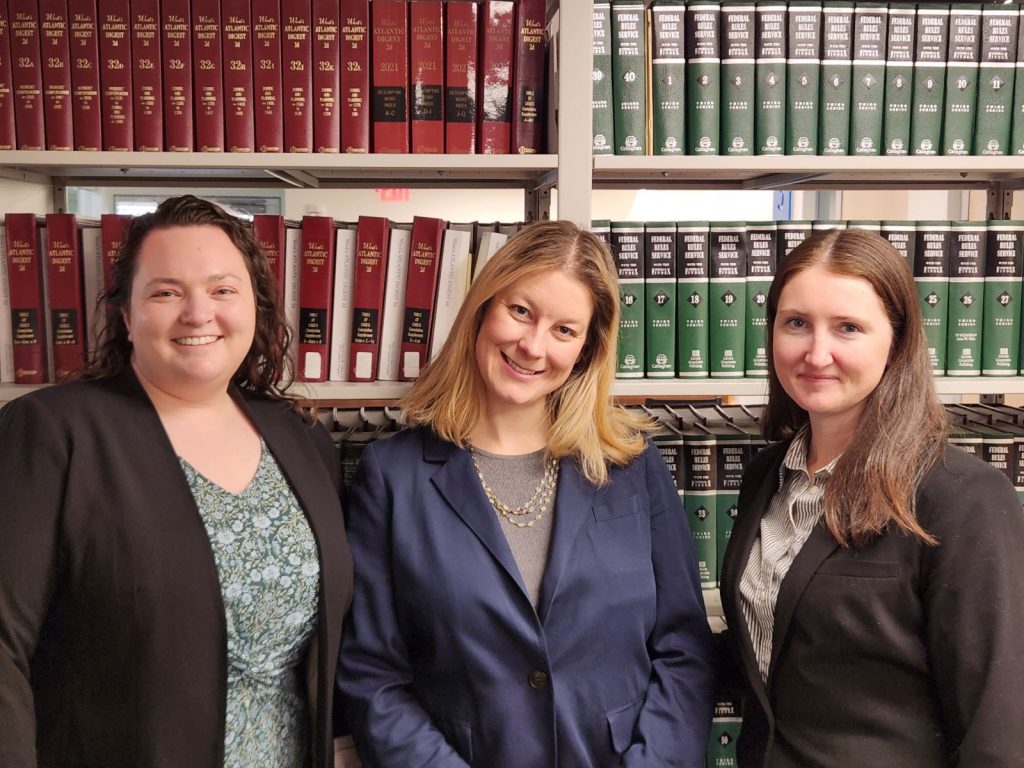
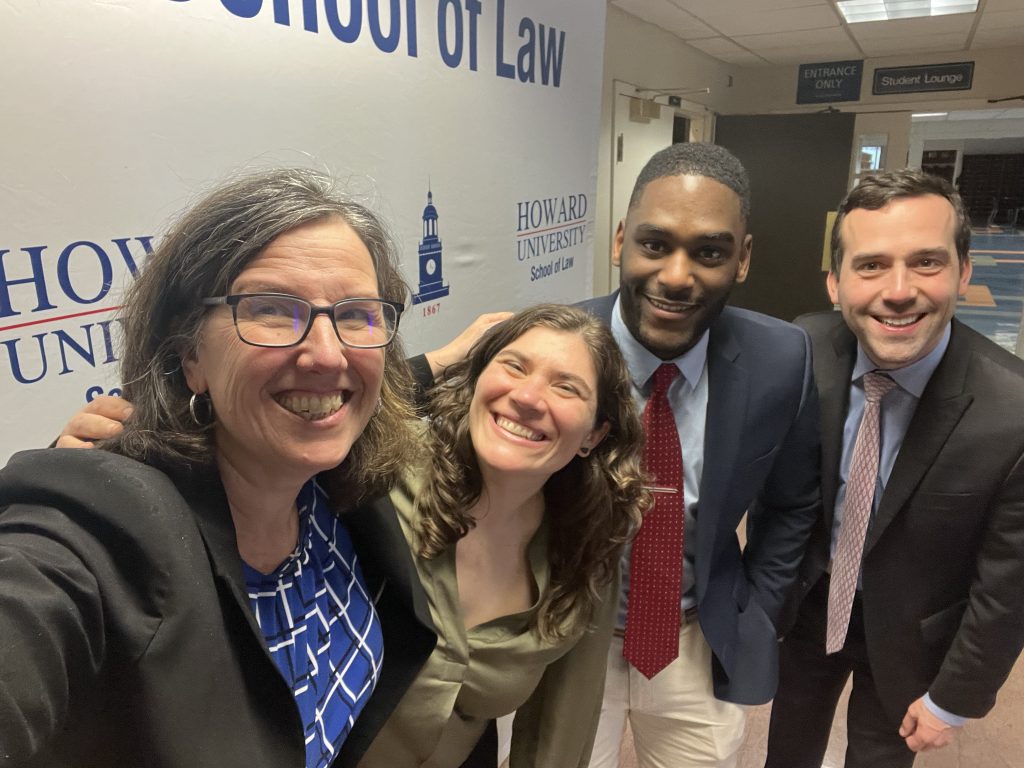
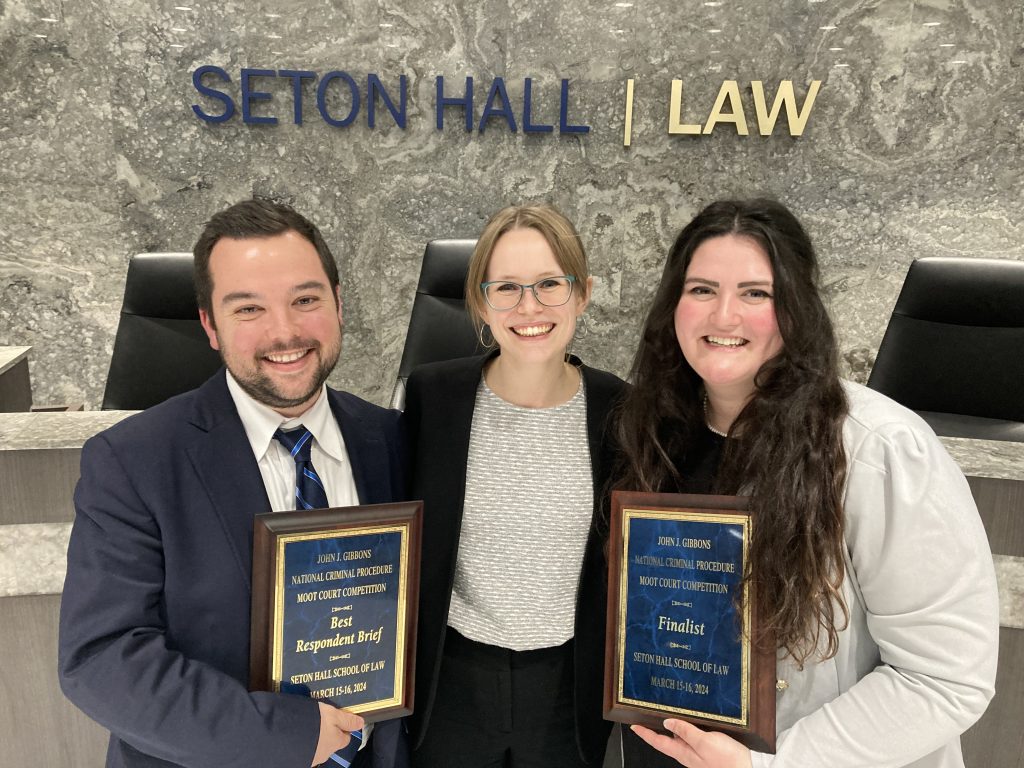
Arey more than doubled the number of practices for all six of Maine Law’s Moot Court teams, using oral arguments practices as an opportunity to draw in the greater Maine Law community.
“The best change I made to the Moot Court program was to get more faculty involved in coaching the teams. This year, our various Moot Court teams were coached by Professors Scott Bloomberg, Anthony Moffa, and Sara Wolff, Vice-Dean Dmitry Bam, and me. Additionally, we all invite alumni and outside experts to help prepare the teams in oral arguments,” Arey said. “This has made a huge difference in preparing them for the competition, and it is also a wonderful opportunity to draw on external expertise.”
Will Simpson, 2L, competed in the Helsinki Information Law Moot Court. That team also took home the award for Best Brief and performed very well in the orals.
“The outside coaches really challenged us with their questions,” Simpson reflected. “They cut so quickly to the heart of the argument and have so much knowledge about these laws it was hugely constructive for us.”
While the competition was thrilling, Thompson said, for her the highlight of the Moot Court season was the practices.
“The preparation process was so rewarding,” she continued. “To feel like you have the support of not just your professors and peers but the entire community was huge.”
While oral arguments are perhaps the showier facet of Moot Court, equally important are the briefs upon which students base these arguments. Most competitors agree this can be more challenging than oral arguments because they must be written without faculty support.
For many it is an opportunity to fully flex their legal reasoning skills – an exhilarating prospect.
“There’s a lot of interplay between brief writing and oral arguments,” Arey explained. “The brief writing forces you to dig into the law on a very deep level and exercise really complex thought.”
Legal writing is heavily emphasized during the first year of instruction at Maine Law. The strength of the program shows not just in recent Moot Court successes but also in the 2024 U.S. News & World Report ranking, which placed Maine Law’s legal writing program in the top 100.
Legal writing is heavily emphasized during the first year of instruction at Maine Law. The strength of the program shows not just in recent Moot Court successes but also in the 2024 U.S. News & World Report ranking, which placed Maine Law’s legal writing program in the top 100.
“I think the 1L program here sets you up very well if you want to do Moot Court,” 3L Alice Keefe said.
“We are thrilled to see our students recognized for their achievements in legal writing program,” said Professor Sara Wolff, who teaches in the 1L legal writing program along with Arey and current visiting professor, John Nidiry.
“Several years ago we reconfigured the program to focus even more on breaking down the many skills students need for effective legal writing and on having students practice them repeatedly in varied writing assignments. We wanted to maximize the opportunities for students to internalize these skills so they can transfer them from assignment to assignment and, ultimately, to legal writing in the upper levels and in practice,” she explained. “That approach has been very effective.”
Keefe and her moot court teammates, 3L Mariah Wood and 2L Danny Hutchins, are evidence of that, winning the award for Best Brief for the Respondent at the Gibbons Criminal Moot Court Competition at Seton Hall Law School this spring. Additionally, the team advanced to the final round of the Gibbons Competition, bringing home the Finalist Award and prevailing over 44 other teams from law schools across the country.
“We were not expecting to get as far as we did,” Wood added. “But it also meant we went in, had fun, and just got to enjoy the experience.”
That attitude is key, Arey said, to making the Moot Court program not only successful on paper but beneficial to each participating student.
“First off, I always encourage students to be themselves,” she added. “There’s a performance aspect to it, always, but I think everyone gets more out of it if they can let their personalities shine. Moot Court is a great experience for any law student, whether they want to do policy work or litigation. Students engage intimately with the law, its complexities and nuances in beneficial ways. This is when I see students really start to think creatively, really start to get excited about the law.”

